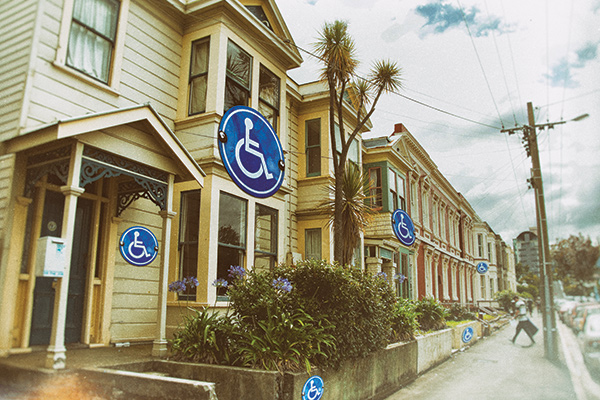OUSA Welfare Officer Payal Ramritu is calling for the inclusion of a specific disability advocate to provide for the needs of students with disabilities. This comes after two Otago students were told that they were not able to live together due to their disabilities.
Otago Accommodation Services, who on their website state that they are “committed to assisting students with disabilities,” suggested one student live in a five-bedroom flat and another to live by themselves. The students wished to remain anonymous, but one said she believes a disability advocate would have been beneficial in her situation: “All my other friends live with their mates, so why can't I?"
Both students share a support worker. "Ideally it would be helpful for us to be living in the same place so [the support worker] could visit us at the same time.” According to the student, the University has two flats that cater for disabled students but the two were not able to live in either of them as they were allocated to international students. The student went to the Head of Disability Support who resolved the issue by collaborating with the Head of Accommodation, but the student worries that other people with disabilities may not have the confidence to take their issue to the Heads of Departments without advocacy support. "Its been frustrating ... It would have been easier to talk to one person, rather than go to the heads of everything," she said.
Another student with a disability had their benefit incorrectly altered at WINZ; the student felt too uncomfortable to go to WINZ by herself to sort it and did not know whom to directly approach at the University or within OUSA.
The students believe a disability advocate could support accommodation issues, discuss financial matters which specifically affect those with disabilities, and help with the general welfare of disabled students.
Students with issues that are beyond academic issues are referred to OUSA's Student Support. However, Payal says, the advocates may not have had prior experience or training with disability issues: “The disabilities office is fantastic but their area is academia and academic support so they are restricted with what they can help with. A disability advocate could help with broader issues like finding a flat, helping sort out extra Studyink assistance and helping to explain what help and support is available.”
Payal said that she had put the issue to the Vice Chancellor who, according to Payal, did not think that it needed to be addressed. She claimed that each disability issue could be addressed individually, but Payal believes other universities have been approaching disability issues more actively and this has been recognised by NZUSA.
The University’s Disability Information and Support (DIS) spokeswoman said that in reference to the number of students who are referred to student support, “We have a good working relationship with [OUSA]. We refer quite a few.” However, she notes that instating a disability advocate, "Maybe would be underutilised. We should be able to do every role, really, so if it was just for disabled people that kind of goes a little bit against what we are trying to do and that is, to create an inclusive environment."
Karen Heine from OUSA Student Support believes there are a lot of students with impairments who are unaware they are able to access support and advocacy. "I have first-hand experience of accidentally coming across cases whereby the students have not been referred to me formally, but I've met them in a social setting and they've disclosed issues they're having," she said.
Heine has experience researching the field of intellectual disabilities and supports the inclusion of a disability advocate. "University is a rough enough time for anyone, but when you are entering tertiary education with an impairment or a disability, there can be a huge array of extra challenges for you to face" she said.
Payal is also hoping to dedicate much of the remainder of the year to collaborating with NZUSA to put together a short guide to tertiary education for those with a disability.

Posted 3:00pm Sunday 21st September 2014 by Anna Whyte.
ABOUT THE AUTHOR
Contributor
MORE NEWS STORIES
- OUSA $4 Lunch SURGES to $5 Lunch
- Local Produce: WarPossumTV
- Inflation Hits Rob Roy
- Castle26 Admins Tell All about Shitposting Crackdown
- By-Election brings Old Worms out of the Woodwork
- Fundraising for Mental Health: A Marathon, not a Sprint (Literally)
- Critic Te Ārohi Wins Best Publication at Aotearoa Student Press Awards
- Skilled Students Snag Blues and Golds
- Job-Seeking Students Say “Bullshit” to Luxon’s Employment Claims
- OUSA Quarter 3 Wrapped: Part II





